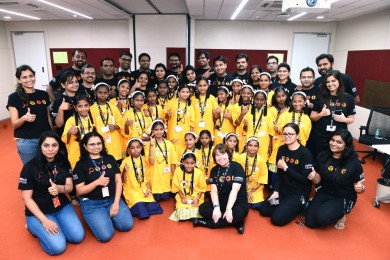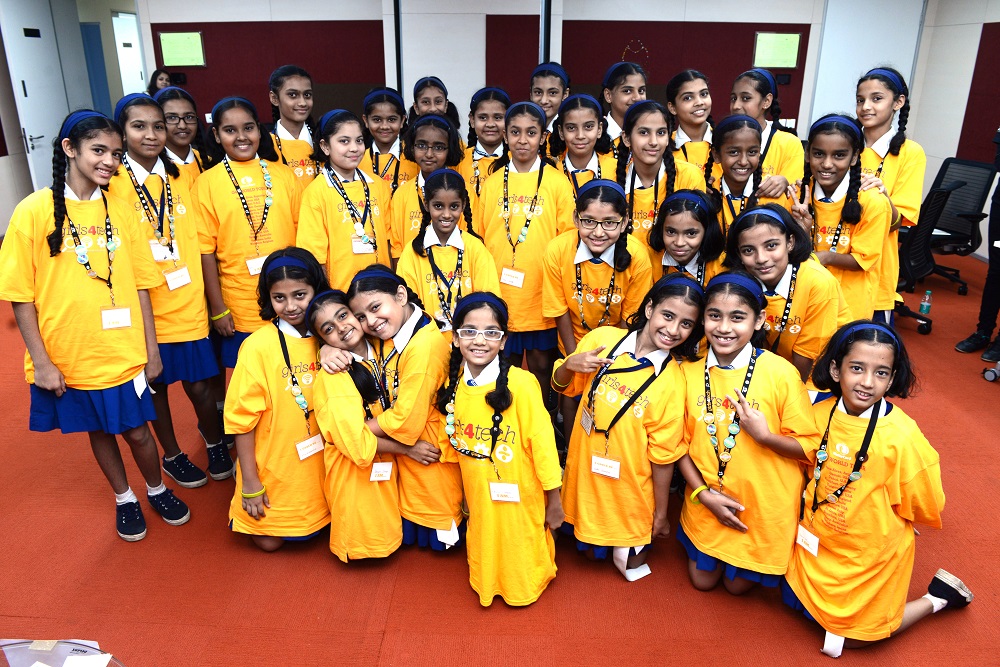Girls4Tech is a hands-on, inquiry-based program that connects the foundations of the Mastercard business to STEM (Science, Technology, Engineering and Math) principles and shows students that it takes all kinds of interests and skills to pursue a STEM career. Part of a worldwide rollout, Mastercard will bring its signature Girls4Tech program back to Pune on 5 August and Vadodara on 9 August.
Girls4Tech is based on global science and math standards and was created in conjunction with curriculum experts and top engineers. It has six stations that showcase algorithms, digital convergence, fraud detection, local network intelligence, cryptology and big data.
For the program in India, Mastercard will host 24 girls from the Akanksha Foundation and 30 girls from the Sardar Dastur Nosherwan Girls High School in their Pune office, 30 girls from the Navrachna Vidyani Vidyalaya school in Vadodara and five girls from Shrimati Kamlaben Badhir Vidyalaya, a school for the hearing impaired in Vadodara.

Team at Akanksha Foundation
Georgette Tan, Senior Vice President, Communications, Asia Pacific says, “India is fast emerging as a global hub of technology and innovation. Our inaugural research revealed that the top reasons why girls are not considering STEM careers relate to ability and perception of gender bias. Through Girls4Tech, we hope to inspire more young girls to develop skills and build the future generation of female talent.”
The results of the study are based on interviews that took place in December 2015 with 1,560 girls aged 12-19 across six markets in Asia Pacific. According to the study, 84 percent of girls (aged 17-19) studying STEM subjects in India see themselves pursuing a STEM career, which is the highest amongst other Asia Pacific countries. In India, a large number of girls (15-19 years old) are studying STEM-related subjects (69 percent) in comparison to girls pursuing Non-STEM subjects (31 percent).
Distribution by country: Percentage of girls currently studying STEM and those currently not studying STEM (15 – 19 year olds)
| Currently studying STEM | Currently not studying STEM | |
| Asia Pacific | 59.0 | 41.0 |
| Australia | 33.0 | 68.0 |
| China | 76.0 | 25.0 |
| India | 69.0 | 31.0 |
| Indonesia | 56.0 | 44.0 |
| Malaysia | 59.0 | 41.0 |
| Singapore | 63.0 | 37.0 |
However, despite girls’ desire to pursue STEM, gender bias is also very apparent in India. Nearly half of the respondents (45 percent) think that girls are less likely to pursue STEM as compared to boys when pursuing higher studies. One of the major reasons for this is that parents generally do not encourage girls to pursue STEM (46 percent).
Thank you for reading the story until the very end. We appreciate the time you have given us. In addition, your thoughts and inputs will genuinely make a difference to us. Please do drop in a line and help us do better.
Regards,
The CSR Journal Team


